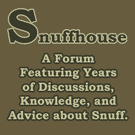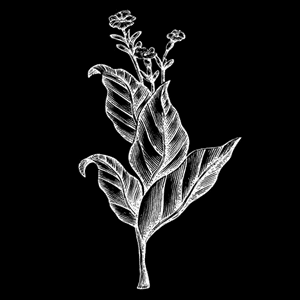
PAGES Effects of
Nicotine The spread and popularity
of tobacco throughout the world
represents nothing less than a seduction
of whole civilizations, one by one, over
the course of history. We know
today, that the seductive power of
tobacco owes much to the effects of
nicotine on those that use tobacco. The problem is
that anti-smoking movements are
mostly made up of zealots, seemingly
willing to twist facts or even lie in
order to make progress in their
political aims. The aims of
zealots never lead to balance.
Zealots seek to control others, in order
to supposedly help them. Put in
context, if the zealots have their way,
their fellow humans must be protected
from everything enjoyable that has the
chance of causing health problems.
Beer, whiskey, soda pop, candy bars,
bacon, fatty foods, carbs, and even sex
are all enjoyable activties that come
with some level of risk. Some of
these joys of life have also been shown
to have addictive qualities. I like nicotine. I
very purposely use nicotine. I've
quit using it before. And I've
chosen to take up its use again.
The common thought would be that I am a
helpless addict, unable to shake a
dangerous addictive substance.
But, I am here to tell you that I have
quit using nicotine in times of peace
and rest in my life, and I've returned
to nicotine in times of stress and
hardship. I've come to enjoy the
effect it has on me, and I believe I
will continue using it moving
forward. I enjoy it. I enjoy
who I am when I use it.
Home
Types of Snuff
Snuffing Techniques
Snuff Misconceptions
Snuff Boxes, etc.
Snuff Tobacco Links
History of Tobacco
Famous
Snuff-Takers
Tobacco Species
Effects of
Nicotine<<<
ARCHIVE
Photo
Albums
Videos about Snuff
Articles about
Snuff
Quotes on Snuffs
Books
on Snuff
Phillips
Griffiths' Site
Chef
Daniel Memories
EXTRAS
Why I Created
this Site
Modern Snuff Blog
Modern Snuff
Facebook

Anti-smoking movements cast this effect
in the most negative terms
possible. They invoke the words
"addiction," "addictive substance,"
"addictive drug," "victims," and other
terms that cast tobacco and nicotine as
villians on the world-stage. The
language is meant to bring to mind the
war against drugs, and to categorize
those that use any form of tobacco as
helpless, hapless victims of some evil
overwhelming outside force.
Ultimately, this avoids a fairly
important philosophical question.
Should we live our lives in every way in
order to live as long as humanly
possible, not matter how many enjoyable
experiences we must avoid? Or
should we live our lives for the
enjoyment the world offers us, despite a
chance that this might result in us
living a shorter period of time? I
believe the answer lies in a balance
between the two extremes.
Nicotine is unique. At least in my
experience. There are times it
acts as a stimulant and times it acts to
relax me. It brings me a feeling
of peace. Things can be going
wrong, but then I enjoy a little
tobacco, and things feel better.
The problem is still there, and I still
need to deal with it, but I'm calm and
focused. Big problems seem
smaller. Anger turns to mild
irritation. Massive disappointment
turns to more circumspect attitude about
the nature of life.
Nicotine increases one's
concentration and focus. It makes
you alert when you need a little
pick-me-up, and it calms you when you
need something to even out a little
anxiety. Nicotine reduces the
appetite and increases metabolism,
causing many that enjoy tobacco to lose
weight as a consequence. Nicotine
seems to give you exactly what you need,
at the time you need it.
Let's look at how nicotine can have such contradictory effects on its user. At low doses, nicotine potently enhances the actions of norepinephrine and dopamine in the brain, causing a drug effect typical of those of psychostimulants. At higher doses, nicotine enhances the effect of serotonin and opioid activity, producing a calming, pain-killing effect. Nicotine is unique in comparison to most drugs, as its profile changes from stimulant to sedative/pain killer with increasing dosages and use, a phenomenon described by Paul Nesbitt in his doctoral dissertation and subsequently referred to as "Nesbitt's paradox."
When tobacco is used, nicotine-rich
blood travels to the brain and immediately
stimulates the release of many chemical messengers
such as acetylcholine, norepinephrine, epinephrine,
arginine vasopressin, serotonin, dopamine, and
beta-endorphin. This release of
neurotransmitters and hormones is responsible for
most of nicotine's psychoactive effects. Nicotine
appears to enhance concentration and memory due to
the increase of acetylcholine. It also appears to
enhance alertness due to the increases of
acetylcholine and norepinephrine. Arousal is raised
by the increase of norepinephrine. Pain is reduced
by the increases of acetylcholine and
beta-endorphin. Anxiety is reduced by the increase
of beta-endorphin. Nicotine also extends the
duration of positive effects of dopamine and
increases sensitivity in brain reward systems.
There is some research suggesting that nicotine
could be used as a treatment for depression,
Alzheimer's Disease, and Parkinson's Disease.
I'm not suggesting that Tobacco and Nicotine are
safe. Just as I would not suggest that beer,
whiskey, soda pop, candy bars, bacon, fatty foods,
carbs, and even sex are safe. Just as with
these non-tobacco related activities, there are ways
to use tobacco that are clearly more dangerous and
ways to use tobacco that are less dangerous.
Smoking cigarettes, especially in large quantities
over a period of time is the most dangerous way to
use tobacco. Smoking cigarettes involves the
lungs, and the burning of tobacco creates chemicals
in the tobacco smoke that have been shown to
dramatically increase the chance of developing
serious health problems. At the other end of
the spectrum, snuff-taking is one of the safest ways
to enjoy tobacco.
Snuff-taking involves only the nose, and leaves the
lungs and throat out of the loop. Snuff-taking
does not burn tobacco, eliminating the threat of tar
and other dangerous chemicals found in cigarette
smoke. Scientific studies about the health
risks of snuff at worst show a slight increase in
the chance of developing serious health
problems. Other studies have been unable to
find any health risk of using snuff. Other
studies show a hypothetical threat, but have been
unable to statistically show a threat in real world
application. I'm not a doctor or scientist, so
I won't try to tell you that snuff is safe.
But, I feel comfortable asserting that snuff-use is
safer than other ways that tobacco is enjoyed.
Now, if someone has never used tobacco, I would not suggest they necessarily start using it. While it is a pleasurable hobby, it can be expensive and there could be health consequences. But, if you already use tobacco or are dead-set on starting, I would strongly suggest nasal snuff as your tobacco of choice.
For me personally, tobacco and nicotine are one of many things in life that I enjoy. There are times that I need its calming effect. There are times I need the focus it gives me. There are times I simply need a quiet moment of enjoyment. Snuff tobacco gives me these things.
Send comments to markstinson@onmail.com. Don't forget to visit our Blog and Facebook Group.
Modern Snuff © 2015, 2016, 2023 by Mark Stinson



